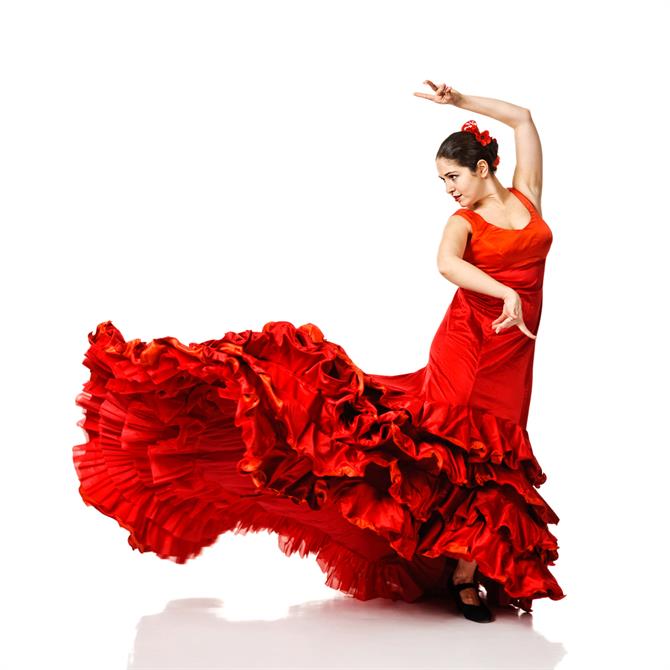Ah, sunny Spain! The sight of flamenco dancers gyrating around a packed resort bar full of paella eating lager louts from Great Britain, with everyone speaking perfect "eeenglish", even the staff. Lazy days spent reading "The Sun" on crowded beaches of lobster-red fatties from "oop north" on their yearly sojourn on the Costa Blanca in full Primark Union jack regalia.
12 months of the year, you can come to Spain and experience this, and get a great tan to show the girls at the office back in windy and wet Britain. This is Spain right?
NO!
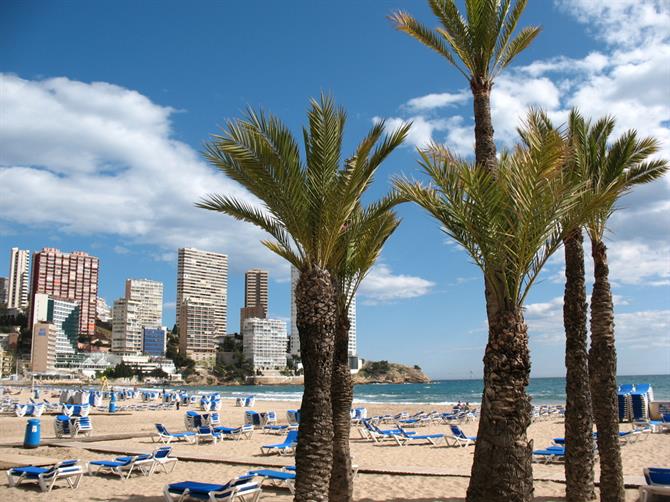
Whilst much of the mainstream British media may have you believe that, and if you have gone on a traditional and cheap package tour, this may well have been your holiday, but how you can sum up an entire country such as this, from one week in Benidorm in 1985? The answer is that you can't.
Spain is so much more than this.
It's diverse, awe inspiring, interesting, cultured, and just waiting for you to explore it this year, but what about these myths? Do the above situations really exist?
Yes they do, but on such a tiny scale, the rest of what can be found in Spain pales in comparison, so let's take a quick look at some stereotypes, some myths and misconceptions about what Spain is really like.
Myth One: You must have Paella when on holiday here.
Nonsense. While Paella is recognised as a national dish, it is but one meal variation on a million and one different and tasty themes.
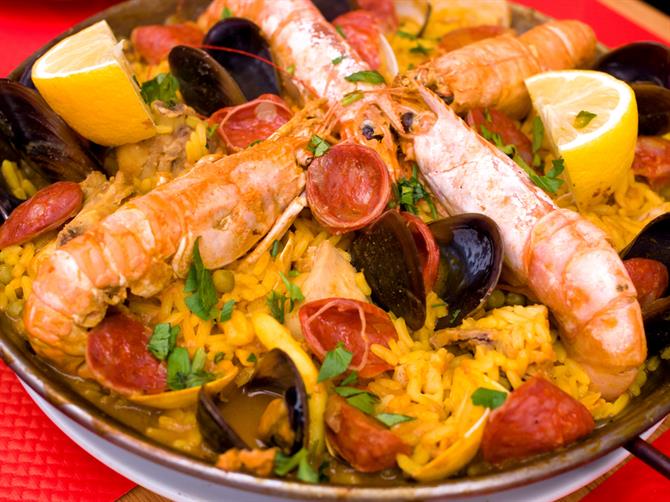
First and foremost, Paella is from Valencia.
Therefore it is a regional dish and not the favoured food of the whole of Spain. The dish is often seafood based, although there are alternatives, including vegetarian options, although the Spaniards idea of Veggie food usually includes tuna or chicken so beware when ordering.
The meal is always eaten during the day, and should not be eaten after the sun goes down, so having it for tea immediately shows you are a tourist. Its a heavy meal and if eaten late at night, will play havoc with your digestive system and may be very uncomfortable too.
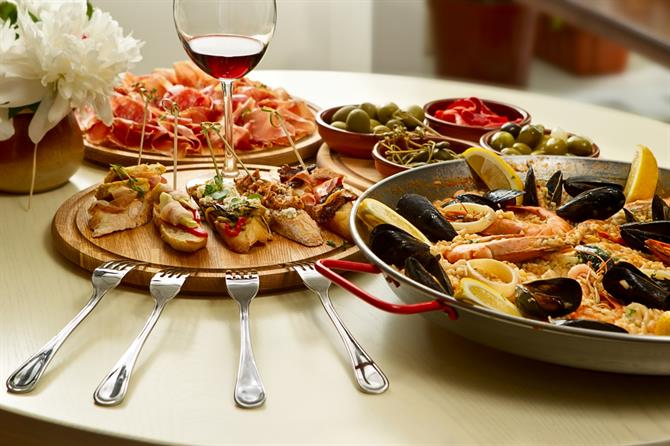
Apart from the various international food available at many resorts, and of course the wide array of Tapas to savour, the Spanish don't only eat Paella, in fact it is normally only eaten on a Sunday, like their version of a Sunday lunch with the family. It is also traditional to eat it outside, not in a hotel restaurant.
Myth two: It is always hot and sunny in Spain.
Wrong!
Spain is a large country with a diverse terrain, ranging from endless flat plains of castilla la mancha, to rocky coves, cliffs and barren scenery of the Costa Brava. Mountain ranges also often have snow for much of the year, a good example being the ski resort of the Sierra Nevada, which is cold and snow covered from November until May.
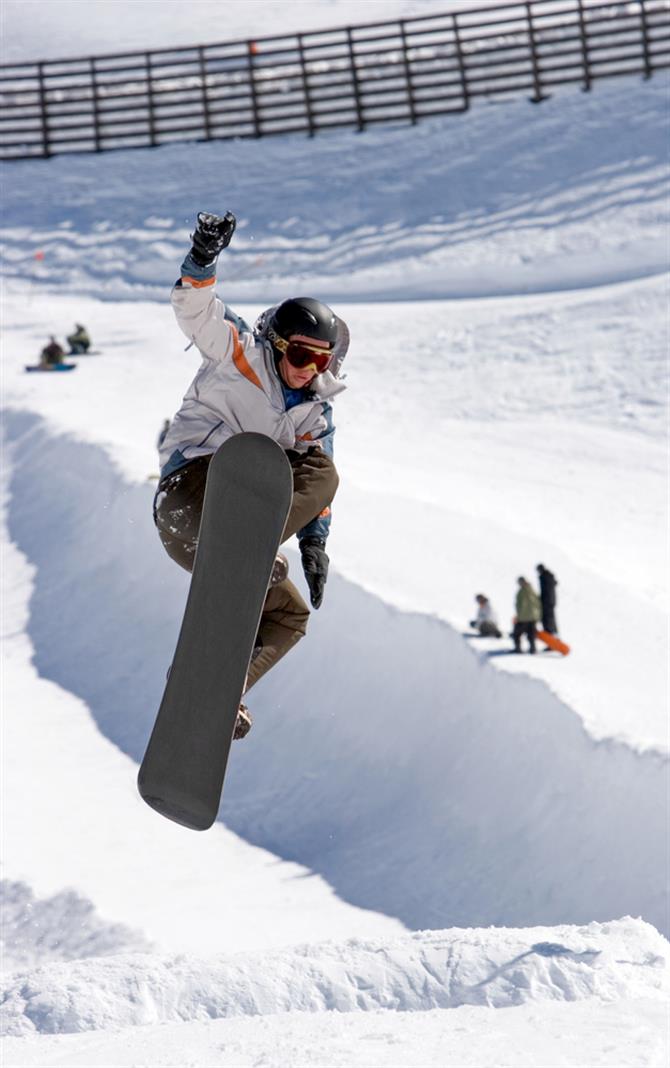
Spain does have seasons but as it has such a long, dry summer, many people simply refuse to believe anything else, but if one ventures to the beautiful northern reaches of the Iberian peninsula, one finds green fields along the coasts of Galicia and the Basque country.
Why? Because it rains a lot there, that's why!
There are times of the year in Northern Spain that actually get MORE rain than in the UK.
A good example would be comparing Bilbao's April rainfall of 120mm, to the April rainfall of my home town in Plymouth, which gets only 70mm of rain! So there's one myth that we can chuck out of the window too.
Myth Three: All the locals speak English!
Wrong again, sorry.
If that myth is based upon experience, it will be that for your previous holiday in Spain, perhaps, the staff at the hotel, at the airport, and maybe the taxi driver, spoke English.
The reason for that is that British people are their main source of income and it is their job to learn English, because they would not earn money otherwise and most British who come here on holiday cannot be bothered to learn even a few basic phrases.
This is the same with having an English fried breakfast, because this is only available in the hotel, or bars near to the holiday accommodation where you are staying, because again, they have made this available because they are targeting the British holidaymaker and if you ventured out of the resort, you would be hard pushed to find any English speakers at all, let alone a good fry up.
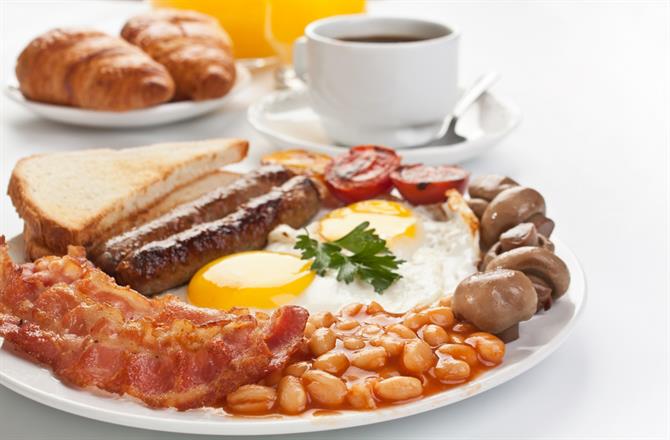
In fact for many Spanish people, you may be surprised to learn that Spanish is not always their first language, and the tongues of Galician, Aragonese, Valenciano, Mallorquin and Catalan baffle even the most earnest of tourist who has spent time in the UK on a crash course in Spanish, now busy rubbing his chin, looking at his phrase book and wondering why he can't understand what they are saying!
Myth four: They all have a siesta and they are lazy.
This is again, not true, although the siesta does still exist, but for many, it is reserved for August the hottest month of the year when you can fry an egg on the pavement outside.
The Spanish have evolved over centuries living under the sun and now how to keep cool when the heat is on, which includes staying OUT OF the hot sun, rather than the tourist, desperate for a tan, who wants as much sun as possible.
Many Spaniards use siesta time, usually from between 2pm and 5pm to go shopping in empty supermarkets, relax in front of the TV, or have a meal with friends and family. The Spanish working day is split into two by siesta time, but many are calling to eradicate it, and to become more competitive within Europe.
There is nothing at all wrong with having a siesta yourself while taking a break in Spain, and often with the typical vacation timetable of early starts and late nights, it can be a great way to stay refreshed and to be pace yourself for longer hours than you would normally keep back at home.
Myth five: The Spanish are always dancing to Flamenco
Wrong again.
Flamenco is of course one of the cultural key points that many people who hear about Spain and reminded of, and it's use in advertising images of Spain probably reinforces that,. however Flamenco is native to Andalusia only, and it's rich roots go back to gitano (Spanish gypsy) days, and conjure images of sherry drinking dancers and dark, sultry women with flamboyant dresses.
The truth is that outside of the southernmost parts of Spain, any Flamenco you find will be solely for tourists, and shows are put on solely for that purpose only.
